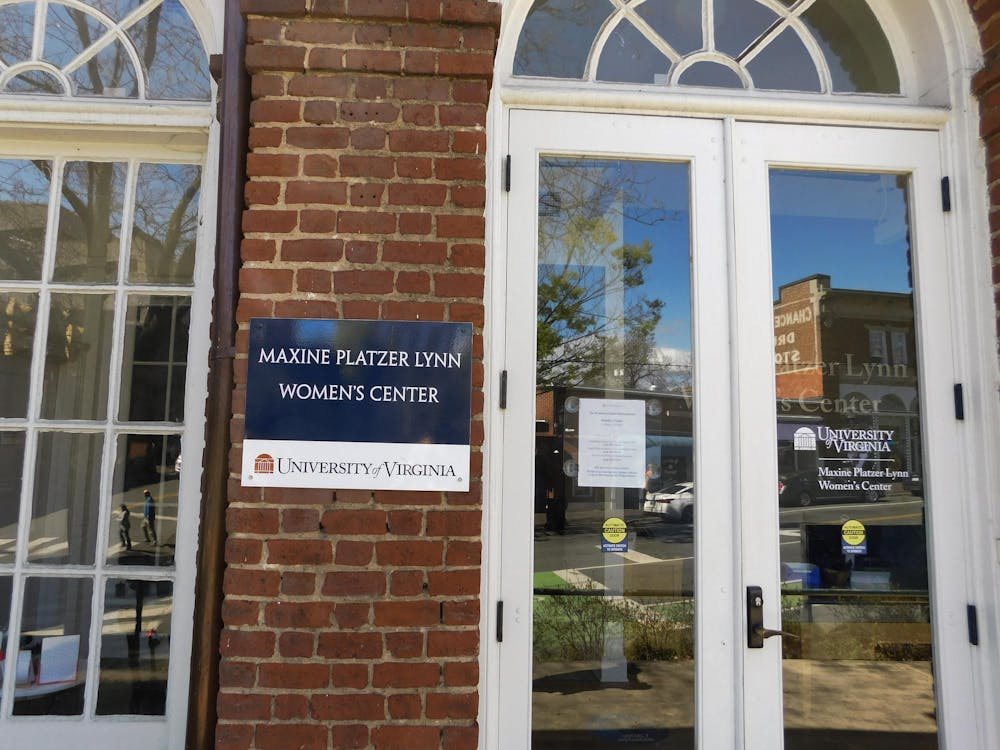Fourth-year College student Michael Marrow went to the University Medical Center Emergency Department Feb. 27 with chest pains. According to medical records provided by Marrow, he left with $636.25 in medical debt, and his insurance footed an additional $2,299.75. In a recent interview with The Cavalier Daily, Marrow said that at the time, he had no idea he owed anything.
In May, Marrow moved out of the John Street apartment he lived in at the time of the ER visit, still unaware of any unpaid medical bills — though in retrospect, he said, he may have received one or two while he was still living there but didn’t see them. In June, he moved into an apartment on Wertland Street. Unbeknownst to Marrow at the time, medical bills for the visit were still being sent to the John Street apartment, he said.
“I think they sent four or five notices to [my old] address,” Marrow said.
Marrow said he didn’t find out about these bills until he logged onto his Student Information System account Aug. 6 and noticed that the Health System had placed a hold on his account. He said he was not sure when the hold was placed but estimated it was placed between July and early August.
The hold meant Marrow could not enroll in classes or access his official transcript, as defined by the University’s Extension and Collection of Credit policy, which permits the Health System to place holds on student accounts.
Marrow paid the $636.25 Aug. 7, and the hold was lifted the same day. But he was frustrated.
“I filled out forms in the hospital,” Marrow said. “It should have been very easy for them to contact me another way, and they didn't.”
When asked to verify particular students’ stories, University spokesperson Wes Hester said that as a matter of practice, the University does not provide student-specific information. Eric Swensen, Health System public information officer, declined an interview request.
Yet Marrow is far from isolated in facing SIS holds due to unpaid medical bills. According to Hester, as of Friday, 17 students had Medical Center holds on their accounts. No student has been disenrolled due to the holds, Hester said, but disenrollment is possible, depending on the situation.
Students, Hester noted, are given a Financial Responsibility Agreement before they can start at the University. The agreement details their financial responsibilities and obligations, including enrollment holds, Hester said.
“I understand and agree that if I do not make payment for all charges on my student account, I may incur a Student Finance hold which will prevent me from adding classes to my schedule, obtaining an official transcript, or receiving my diploma, and I may be removed from my classes after the first week of the semester,” the 2019 Financial Responsibility Agreement section titled “Finance Hold” reads. “I understand and agree that a Student Finance hold may also prevent refunds due to me from being processed.”
Hester also said that the State Comptroller’s Debt Collection Manual directs that public universities have policies and procedures to ensure that students with outstanding debts to the universities are barred from enrolling for the next year.
The enrollment holds policy has been in place since the 1990s. Yet it only drew widespread attention last week, when a Washington Post article revealed the University Health System had been taking aggressive measures to collect payments from former patients, including lawsuits, debt collections and enrollment holds.
According to Hester, a Health System employee places a hold as a last resort if a student does not make arrangements to address unpaid medical bills — such as setting up interest-free payment plans and qualifying for financial aid — after they have received four to five notices requesting payment.
“The holds were originally implemented as an alternative to standard debt collection practices because students were transitory and the outstanding bills would impact their credit,” Hester said. “Instead, the Medical Center opted to stay normal collection activity in favor of the hold process.”
This confused Marrow, he said, because the Medical Center had reported that they had already sent his debt to collections.
“I think my bill wasn't sent to collections, even though that's what they were telling me over the phone,” Marrow said. “So this was a very instructive experience how the American healthcare system works.”
The enrollment holds policy is currently under review by the University, Hester said.
“Choosing between healthcare or their academics”
Last week, the Medical Center came under fire when Kaiser Health News published a report in The Washington Post that found that the health system had sued former patients more than 36,000 times for more than $106 million between 2013 and June 2018. According to the report, the University filed thousands of property liens, seized wages and bank accounts and drove families into bankruptcy.
In addition to the threat of lawsuits for those owing more than $1,000 and the threat of debt collection for those owing $1,000 or less, students with medical debt can face disenrollment.
For fourth-year College student Ariel Harris, the hold she noticed on SIS Aug. 29 warned that she would be disenrolled, dropped from all of her classes and stripped of her student privileges if she did not pay off her Health System debt by the next day, Harris said in an interview.
According to screenshots Harris provided to The Cavalier Daily, the hold stipulated that if she did not pay the debt in time, her ID card would be deactivated and Housing, Dining, Cavalier Advantage and “all other student privileges” would become unavailable.
Harris had dropped a class the previous day, suggesting that the hold threatening her near-immediate disenrollment had been placed the same day she saw it.
After a car accident in March left her with neck and shoulder injuries and a concussion, Harris received medical care at the University Emergency Room. Harris did not receive a physical bill for the ER visit until the day before the hold was placed and thus did not know she owed anything to the Medical Center, she said. She did not think she would be held responsible for any payments to the hospital, anyway, Harris said — the crash wasn’t her fault and the person who hit her was responsible for her bills.
The morning of Aug. 30, Harris called the Medical Center. The debt was recorded as $7,000, but some of it was to be paid by her insurance, which had not yet processed it, Harris said. According to Harris, the employee she spoke to said she would have to pay $1,700 that day. Her father paid the bill and the hold was removed.
“We're not from a rich family,” Harris said. “That was my rent, my life, for my last few months of college. So I'm hoping to recoup that money and before sometime next year, so I can afford my living expenses.”
As of Monday, the Health System has refunded Harris $715.40.
But to Harris, several missteps had been made along the way that resulted in the $1,700 charge. She said she did not receive physical bills and had a balance of zero on her MyChart account — the Health System’s account management system. Harris said earlier this month she met with a hospital administrator, who told her several of her bills had not been processed through her insurance, the reason for the initial $7,000 charge.
Harris may still have more bills to pay. And if she doesn’t pay them by the time of enrollment for Spring semester, she said, she could be disenrolled.
“If I was not in my last year here, I would transfer,” Harris said. “Because I don't want to be put in a position where I feel like I have to choose medical care that I need, yet can't necessarily afford to pay off right off the bat because of an institution that brands itself on being top tier in the world, in the country.”
Harris said she believes the University should divorce the health care system from the academic institution.
“You're putting your students in a position where they're choosing between healthcare or their academics,” Harris said. “And that's not fair.”
It is unclear as of press time if or when the enrollment hold system will be amended. Last Friday, the health system introduced new policies to benefit uninsured and low income patients beginning in January 2020. The day prior, 14 patient lawsuits were dismissed.






